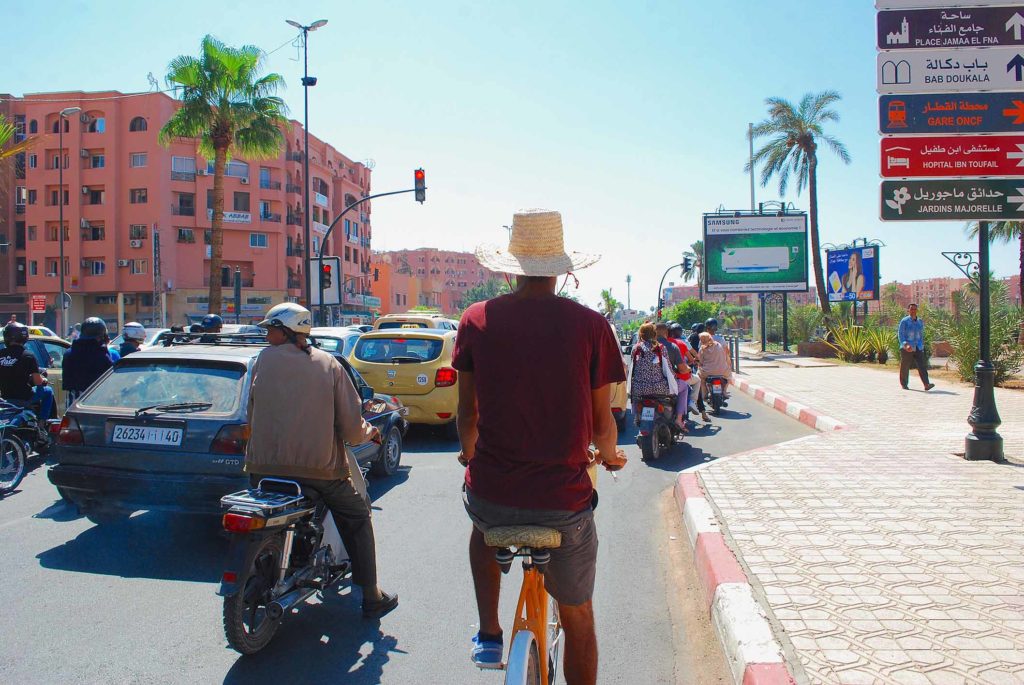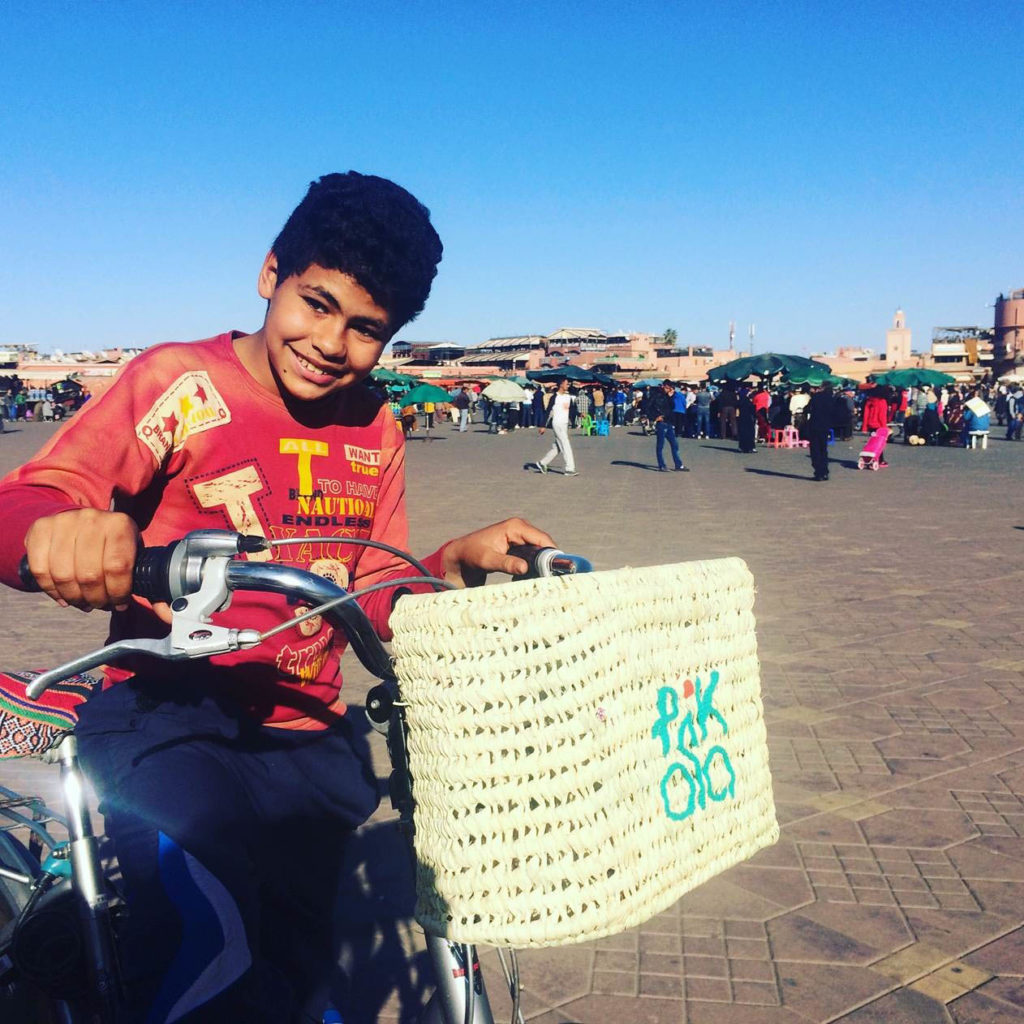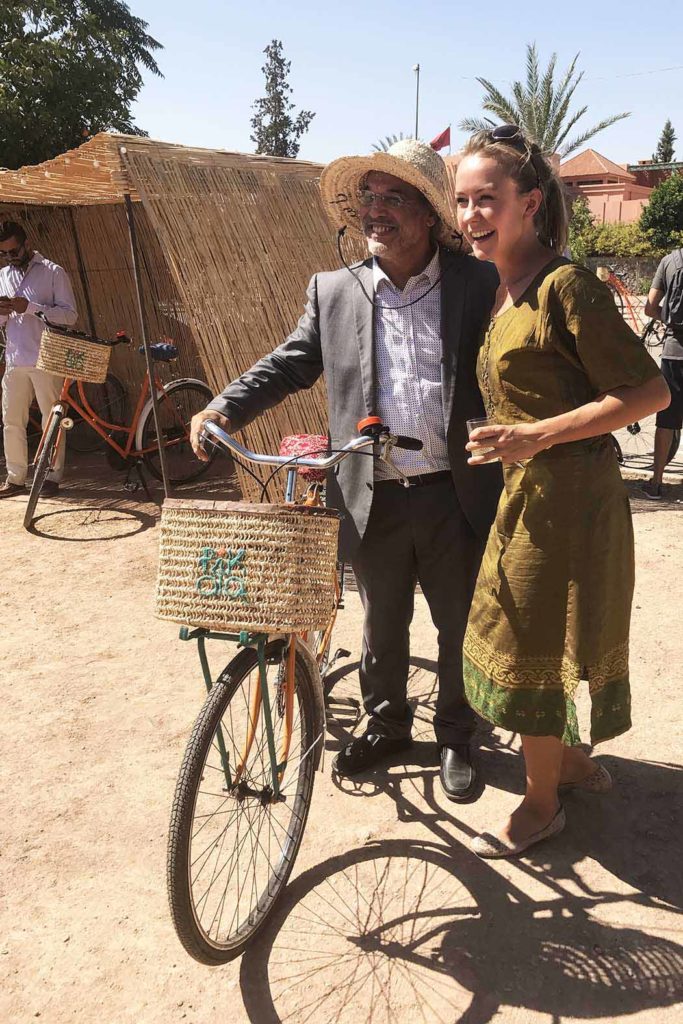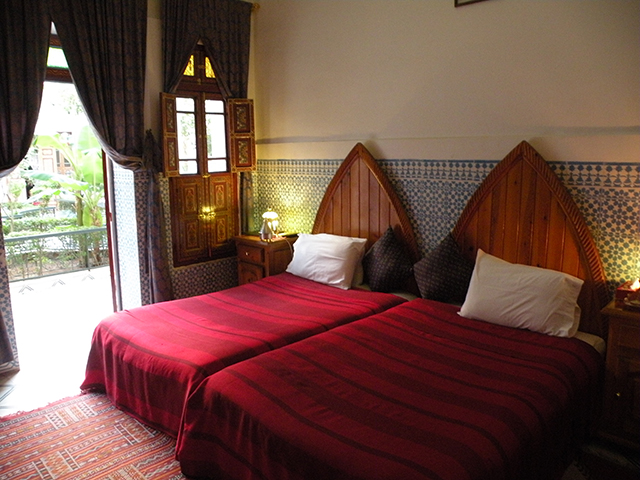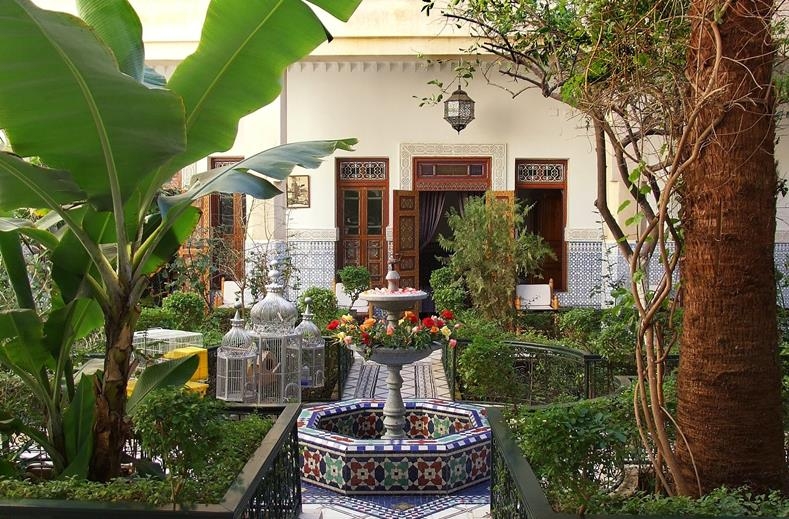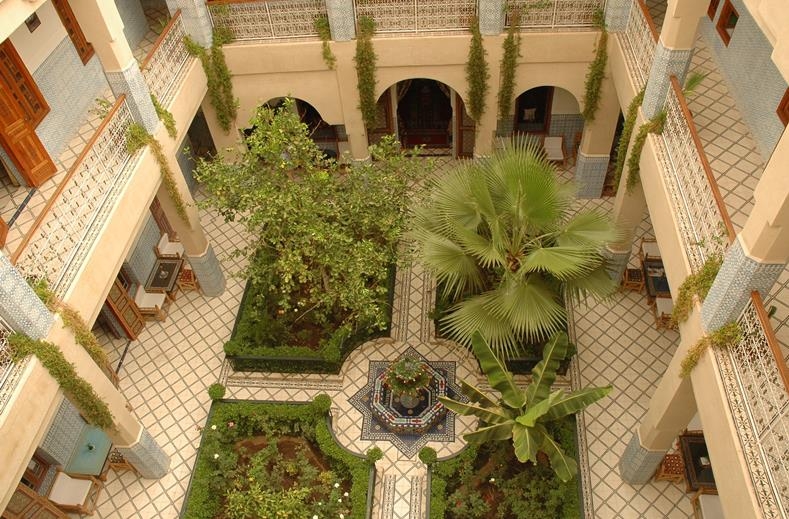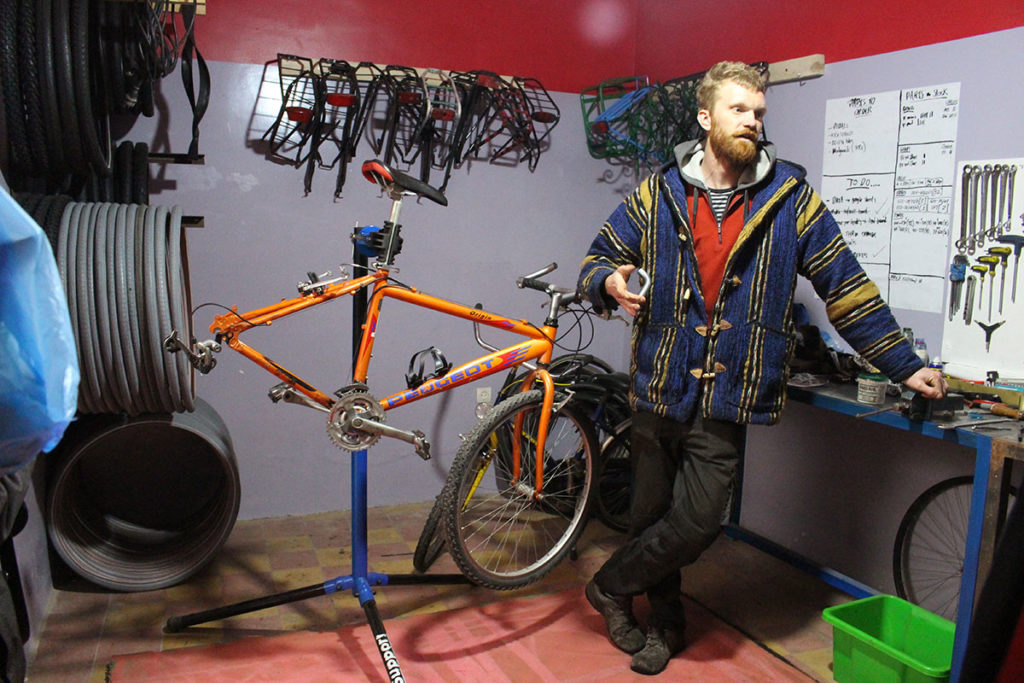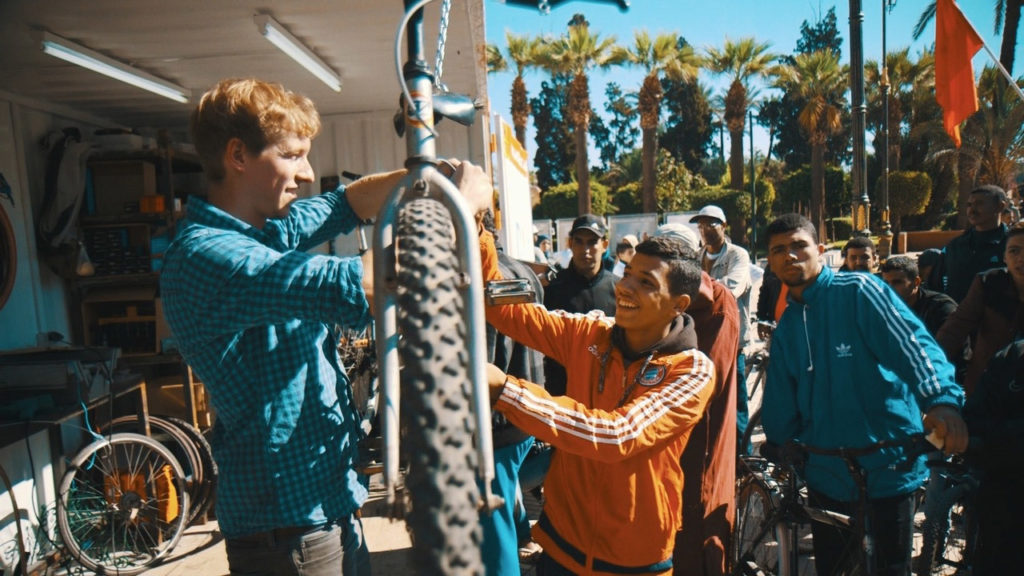With tenacity, the right timing and a good idea she gets a lot of people moving. Literally, because Cantal Bakker from The Hague and her team, together with her foundation Pikala Bikes, leave local young people, women and tourists ‘toiling’ on their bikes through Marrakech, encouraging people to leave the environmentally polluting scooters behind.
Text: Angelique van Os | Image: TUI/Pikala & Angelique van Os
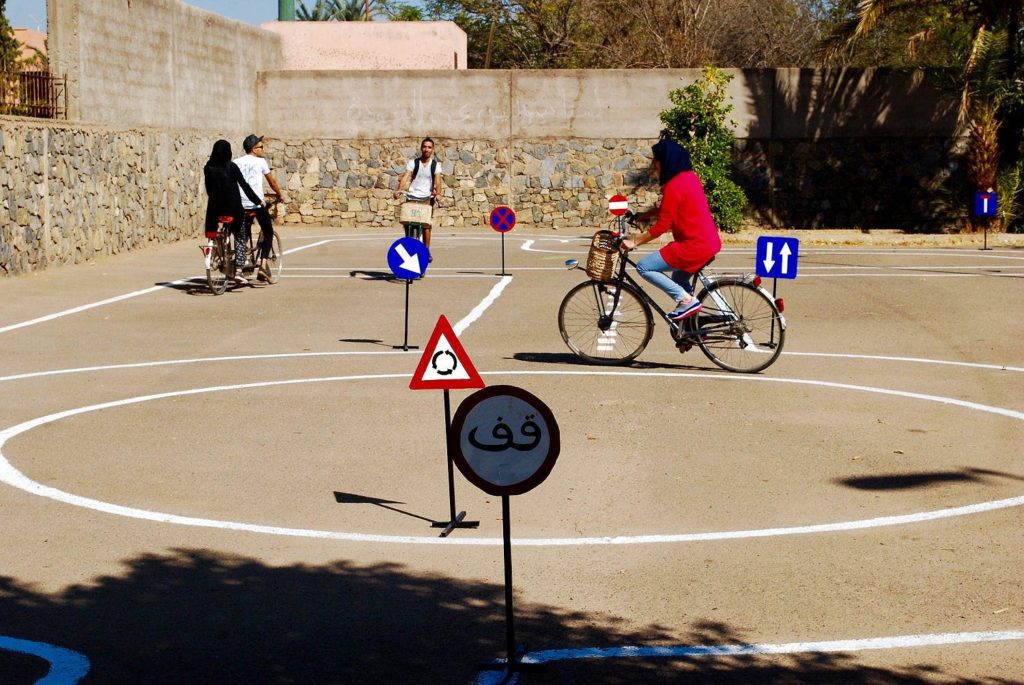
Waving his hand gently, he manoeuvres himself along a maze of scooters, taxis, lorries, cars, buses and horse-drawn carriages. I follow him closely. My hands are firmly clasped around the steering handles and at the ready to squeeze the brake. When my young guide Sana Handor cycles into the heart of the Medina, the traffic decreases. However, the streets become narrower and the flow of people closer. Souk salesmen look up from their work when we pass by. Sometimes a scooter unexpectedly shoots around the corner, because they are tolerated in old Marrakech. Apart from traffic lights and road signs there are no rules. Everyone joins in, turns off or drives through and past each other. And in spite of the traffic witch’s kettle, this often goes without a hitch. Even on a bicycle, which is becoming more and more visible in the Moroccan city. This is partly due to the initiative of Cantal Bakker (26) from The Hague and her team. In just under two years time she has set up Pikala Bikes(hose for bicycle) with support from the TUI Care Foundation, among others.
Own ‘bicycle park’
This project starts as an incentive for young Moroccans and women in particular to make more use of the ‘clean’ bicycle and to leave the polluting scooters behind. Cantal explains: “In the Netherlands I was a bicycle instructor for refugees and was inspired by the freedom that cycling gives to people. After a holiday in Marrakech, where I got on my bike myself, I felt free and people saw me more as a local. I also felt the calling to do something about the high unemployment among young people and to tackle the environmental problem of polluted scooters. The ambitious Cantal chooses a perfect moment: she joins the UN Climate Conference 2016, where she and her colleagues repair bicycles for free from a mobile workshop on the famous Mohamed V Avenue. This attracts hundreds of people and she receives international praise and support for her project.
Cantal now has her own ‘bicycle park’ and workshop. There are over 150 two-wheelers in use, about 200 are waiting for a repair service and young people get information and practical experience how to move safely in the busy traffic. In addition, it provides employment for repairers and trains bicycle guides. There is also a collaboration with local artists and craftsmen who decorate Pikala’s bicycles with beautiful silver and bells, handmade wicker baskets and embroidered saddle covers. In addition to a sustainable approach, Pikala also has an educational goal, because it focuses on a cleaner future for future generations, in which young people are self-sufficient and can be part of local tourism. And those elements make it interesting for the TUI Care Foundation, says British CEO Jane Ashton: “Pikala includes all the elements that we stand for, which makes it quite unique in its kind. It’s fantastic how Cantal and her young team of about 15 people managed to do this in a short time. We are proud to be able to support the project.”
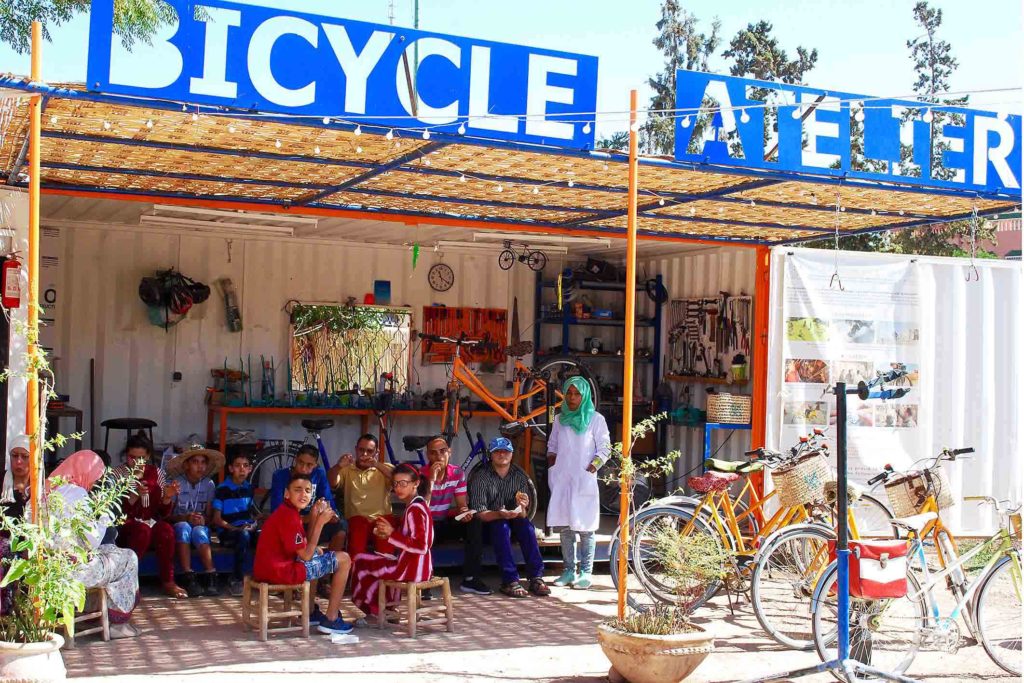
“I felt the call to do something about the high level of unemployment among young people and to tackle the environmental problem of polluted scooters”.
Four element tour
Back to the bike, where I follow the holy four-element tourin the southeastern part of the city. We stop at mosques, drinkable water fountains, the public hamman and public ovens, which everyone can use. The ovens mainly produce bread, which in Moroccan culture is consumed with every meal. It sketches a picture of daily life outside the city walls. However, the stories of the guides are still too superficial to really get a picture of it. When I encourage the boys with some questions they come loose. So we make a stop at a hamman. While people clean themselves and find peace for their prayers, only one man takes care of the heating. How hesitantly I walk behind the guide, facing the darkness. Here, in the mud cellar of the bathhouse, the hard work is done. The man is a stoker and does nothing more than to equip the oven with wood. He tells that he works and lives here to maintain his mood. In a corner is a dirty mattress with a pile of clothes. There are no windows, no sanitary facilities, nothing. This is the harsh reality for many hard-working workers in Morocco.
Rich impressions
The next day I go out with Cantal, through the maze of busy streets in the Medina, on the edge of the mellah, (Jewish quarter) with its colourful souks, partly to discover lesser known addresses on foot. You’d pass it unsuspectingly; like sewing studio Al Kawtar, where 18 women with a disability produce beautiful clothes and sheets or Henna Café Marrakech, where in a tiny downstairs space English and Arabic lessons are given and upstairs in the coffee room ladies apply green, natural hemp patterns. And Café Clock, which is not only a delicious lunch spot but also a meeting place for local artists and where weekly storytelling meetings take place. We always cycle small pieces. Hidden gem is Maison Denise Masson, founded by the French ‘La dame de Marrakech’, who was the first woman to translate the Koran from Arabic into French in 1967. Cantal explains: “Her former riad, with its beautiful patio, is now a cultural centre where exhibitions, concerts and lectures are regularly given and is part of the Institute Français. Here you can often find beautiful things. ” Another intimate cultural meeting place is Le 18, where they even host artists temporarily during their exhibitions. Cantal also knows how to find beautiful funduqs (old courtyards) and we take a look at the training CFQMAM, where young talent maintains various crafts, such as man-den braids, instrument building, pottery and leather making. We conclude with a late lunch in the beautiful patio of La Ferme, where Cantal just received a phone call from the Netherlands: there are another hundred bicycles available that can be transported to Marrakech by container. She can’t stand her happiness. Cantal’s drive is contagious, but as modest as it is, she says: “I’m not unique; anyone who’s driven can achieve this”. With a full stomach and many more impressions we get back on our bikes, leaving the city behind us, facing the horizon.
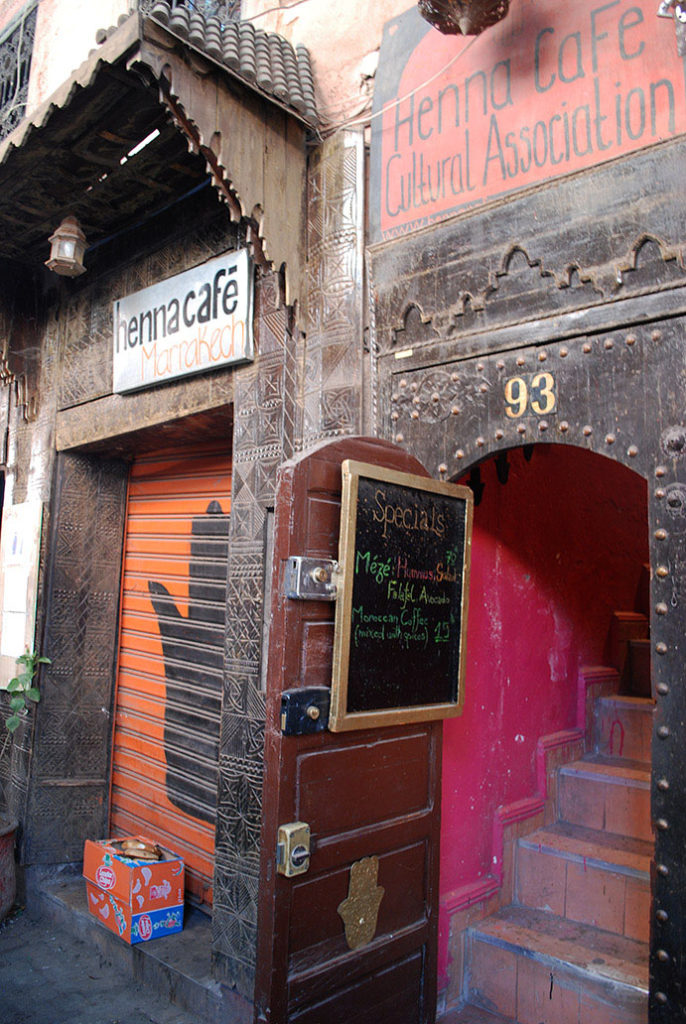
Henna Café 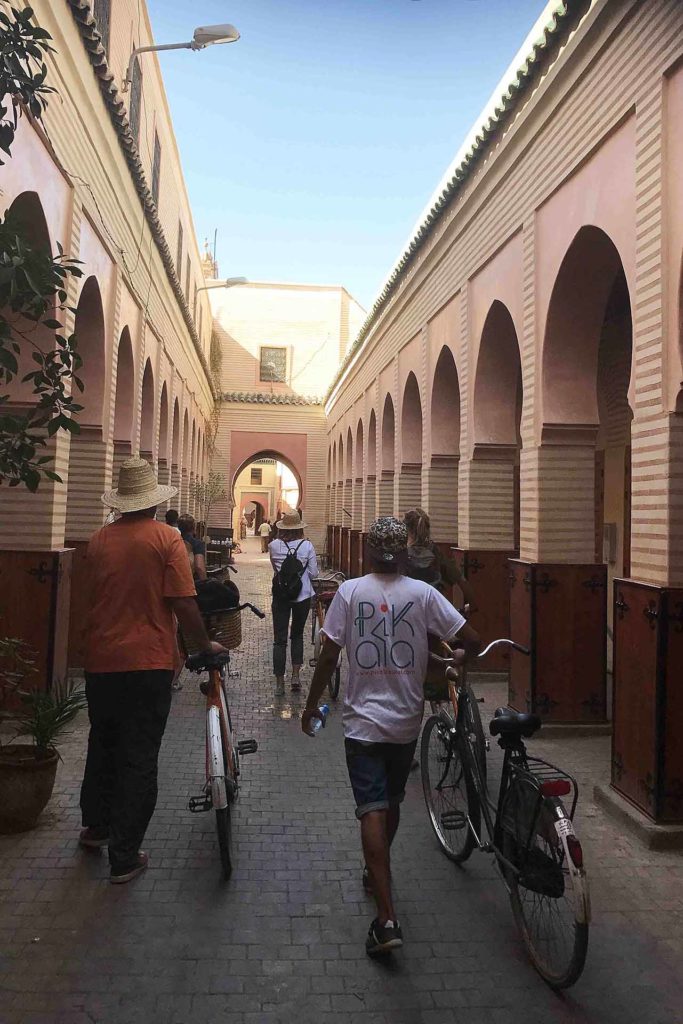
Wander through the narrow streets. 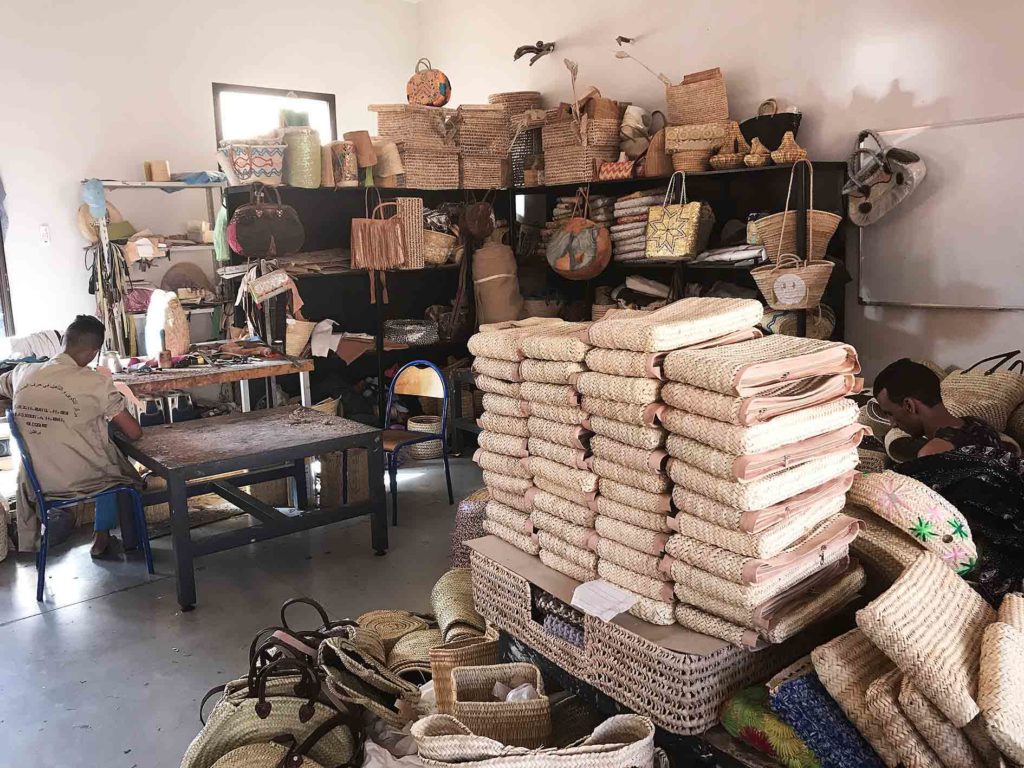
In the workshop of the CFQMAM training course, the bicycle baskets from Pikala are made by hand.
TUI Care Foundation
The TUI Care Foundation, based in the Netherlands, has been in existence since 2011 and supports a variety of projects and partnerships around the world that stimulate local tourism and create new opportunities for young generations in the areas of education, nature and environmental protection, while trying to enhance the positive impact and awareness of travellers and their environment.
In addition to Pikala, the TUI Care Foundation also supported the Moroccan Primate Conservation Foundation in 2015, which aims to protect vulnerable, endangered Barbary Macaque monkeys and their environment. The animals are mostly traded illegally in and around Marrakech and unfortunately chained animals are still visible on the famous Djemaa el Fna square where they are used as a tourist attraction. If you see this, please report it to the foundation and ignore the traders.
Pikala & Marrakech practical
There are now several tours that you can book with Pikala individually or in small groups (max six people): in addition to a similar Medina tour and four-element tour, there is also a garden tour, which shows the green heart of Marrakech and there are two routes that you can follow with the Binatna group bike. The bike tours can be requested online: pikalabikes.com. From Schiphol you can fly with Transavia directly to Marrakech. Transavia.nl
Stay
Riad Dar Sbihi
Prices on request. Period: December 2017. Riad Dar Sbihi is run by a Flemish-Dutch woman who has been living in the Marrakech for years and can give you a lot of nice tips during your stay. For more info look HERE.
Horse-drawn carriage rides
Speaking of animal suffering, we at Pure off the Road certainly don’t want to be educational, but strongly advise against stepping into one of the many horse-drawn carriages on the already mentioned Djemaa el Fna square for a tour. The horses are often in very poor condition. They stand all day in the burning sun, get little water, the horses are malnourished, have bad feet and some animals are even crippled for the cart. If you still want to do this, look at the condition of the horses. As a horse connoisseur and enthusiast I stood with tears in my eyes on this square and spoke to some owners about it. We will definitely come back to this subject later.
This press trip is made possible by TUI, TCF and Pikala.

